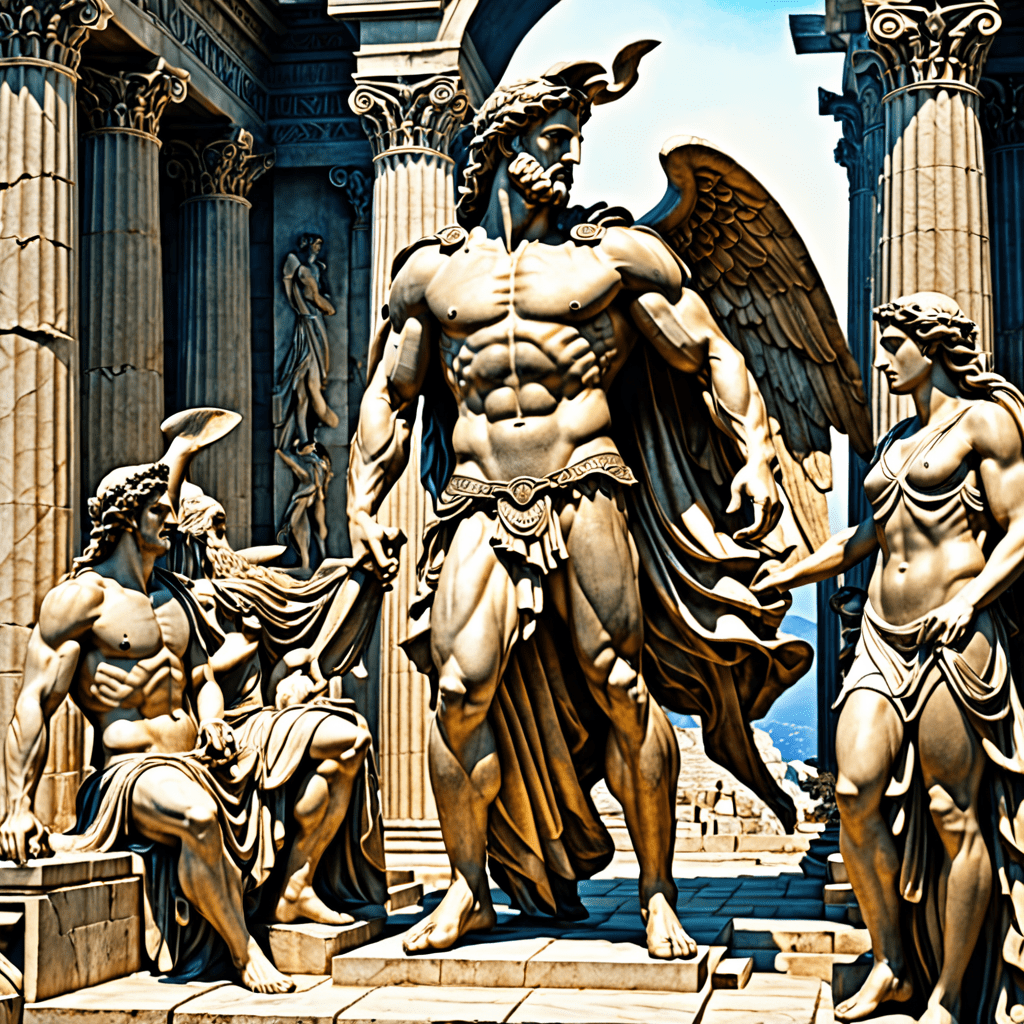The Influence of Greek Mythology on Modern Psychology
Greek mythology, with its intricate stories of gods, goddesses, heroes, and monsters, has permeated various aspects of modern society, including psychology. The rich tales of the ancient Greeks continue to influence and inspire modern psychological thought and practices in a myriad of ways.
1. Archetypes and the Collective Unconscious
One of the most significant contributions of Greek mythology to modern psychology is the concept of archetypes, as proposed by Swiss psychiatrist Carl Jung. Jung believed that archetypes, universal symbols and themes deeply rooted in the human psyche, can be traced back to ancient myths and legends. Greek myths, with their archetypal characters like the hero, the mentor, the trickster, and the goddess, provide a blueprint for understanding human behavior and the collective unconscious.
2. Mythological Narratives and Therapy
Therapists often use mythological narratives as a tool for exploration and healing in modern psychology. By looking at ancient myths, individuals can gain insight into their own struggles, relationships, and personal development. The hero’s journey, a common motif in Greek mythology, mirrors the challenges and transformations individuals face on their path to self-discovery, making it a valuable allegory in therapy sessions.
3. Psychodynamic Theory and Greek Mythology
Freudian and post-Freudian psychodynamic theories have also drawn heavily from Greek mythology. Concepts like the Oedipus complex, named after the tragic hero Oedipus, and Narcissus, from the story of Narcissus and Echo, have become integral to understanding unconscious desires, identity formation, and personality development in modern psychology.
4. The Odyssey of Self-Discovery
In today’s world, the concept of the hero’s journey from Greek mythology is often linked to the individual’s quest for self-discovery and personal growth. Just as heroes in ancient myths overcame trials and tribulations to achieve enlightenment, individuals navigate through their own inner conflicts, confront their fears, and ultimately find meaning and purpose in their lives, echoing the timeless tales of Greek heroes like Odysseus.
Frequently Asked Questions About the Influence of Greek Mythology on Modern Psychology
What is the connection between Greek Mythology and Modern Psychology?
Greek mythology has significantly influenced modern psychology by providing archetypal symbols and narratives that help in understanding human behavior, emotions, and relationships. Psychologist Carl Jung, for example, emphasized the relevance of mythological themes in the collective unconscious of individuals, shaping their personality and mental processes.
How do Greek myths impact psychological theories and therapies?
Therapists often use Greek myths as metaphors to help clients explore their inner struggles, fears, and desires. These myths can serve as powerful tools for self-reflection, personal growth, and healing. By identifying with mythological characters and their journeys, individuals can gain insights into their own experiences, behaviors, and challenges.
Can you give an example of how Greek mythology is used in psychotherapy?
One common example is the story of Narcissus, who fell in love with his own reflection. This myth is often employed in therapy to explore issues related to self-image, self-absorption, and relationships. By delving into the themes of narcissism and self-love depicted in the myth, individuals can gain a deeper understanding of their own patterns of behavior and perceptions of self.
Why is the integration of Greek mythology important in modern psychology?
The integration of Greek mythology in modern




